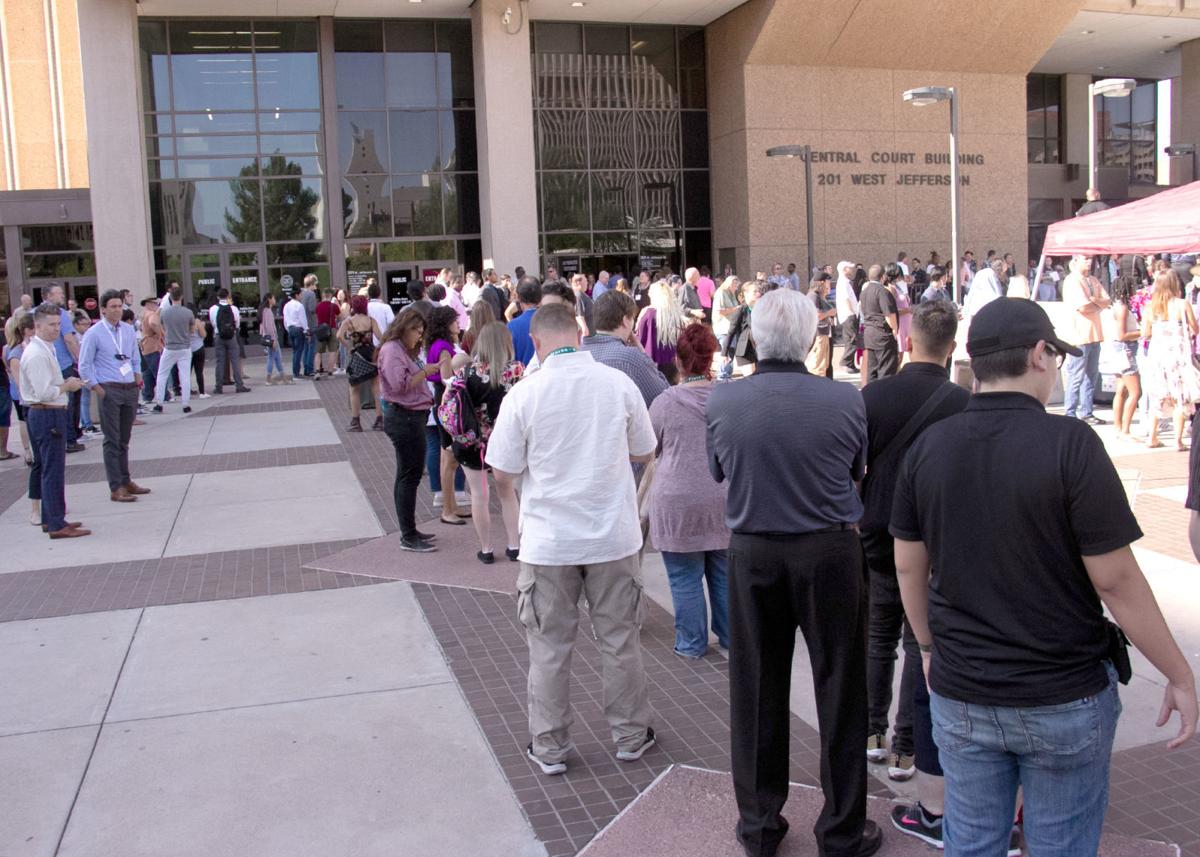PHOENIX т A federal judge on Monday refused to strike down an УлшжжБВЅ law that allows a judge to invalidate otherwise legitimate and qualified signatures on an initiative petition.
In a 19-page ruling, Judge Susan Bolton acknowledged the 2014 statute could make it more difficult for those proposing their own laws and constitutional amendments to put their proposals before voters.
But Bolton said challengers did not present enough evidence, at least not yet, to show that allowing it to remain in effect presents irreparable harm, either to voters or those who hope to propose future ballot measures. So, for the moment, the law and its hurdles will remain on the books т and likely will be in place as groups start submitting petitions for issues to go to voters in 2020.
The law, which passed without significant debate, spells out that paid circulators and those who do not live in УлшжжБВЅ must first register with the secretary of state or their signatures collected do not count.
People are also reading…
But the significant provision deals with the ability of those trying to keep a measure off the ballot to subpoena circulators to appear in court to verify both their own eligibility as well as how they gathered the signatures. Specifically, whatтs been dubbed the Strikeout Law says that if any circulator who has to register does not show up, then all the signatures that person gathered can be struck, potentially leaving the petition drive short of its goal.
That is more than an academic issue.
The ruling comes as УлшжжБВЅns for Fair Lending, one of the groups that filed suit, is circulating petitions asking voters in 2020 to cap interest rates on auto title loans at no more than 36% annual interest. Current laws allow lenders to charge more than 200%.
There was no immediate response from the organization on how the ruling will affect its ability to get the 237,645 valid signatures needed by July to qualify for the ballot.
The 2014 law already has kept one measure off the ballot. Voters did not get to decide last year on the тOutlaw Dark Moneyт initiative that sought to put a provision in the УлшжжБВЅ Constitution to require any group seeking to influence a political race or ballot measure to reveal the identity of anyone who contributed more than $10,000.
In that case, challengers issued subpoenas for 15 circulators. When none appeared, the judge disqualified the 8,824 signatures they had collected, leaving the petition drive short.
The УлшжжБВЅ Supreme Court upheld the law т and the decision to keep the measure off the ballot т ruling the statute тfurthers the constitutional purpose of the initiative process by ensuring the integrity of signature gathering by reasonable means.т
That led to this new lawsuit, with attorney Sarah Gonski telling Bolton the law тunconstitutionally discourages the people of УлшжжБВЅ ... from exercising their fundamental right to make law without consulting the Legislature.т
For example, Gonski argued, the requirement could reduce the number of people available to circulate initiative petitions. She said groups seeking to change the law would be reluctant to hire paid circulators from outside the Phoenix metro area for fear they would not show up in court, with the result of all their signatures being tossed.
Bolton disagreed. тThere is insufficient evidence of a тchillingт effect,т she wrote.
The judge was more willing to consider the argument that organizations pushing initiative measure will have to gather more than the minimum number of signatures required for fear some would be thrown out.
тBallot-access measures like the Strikeout Law can restrict political speech,т Bolton agreed. But she said that challengers, to this point, тhave simply failed to show facts or circumstances demonstrating such restrictive effect.т
Bolton also showed interest in the fact that the legislators who approved the law on disqualification of signatures applied it only to ballot measures and not to nominating petitions for themselves and other elected officials.
Attorneys for the state argued that distinction is merited, citing the Voter Protection Act. That constitutional provision says once a measure is approved at the ballot box it cannot be repealed by the Legislature but instead must be taken back to voters.
тThe тnear permanencyт of an initiative once passed is more of a legal outcome than a compelling government interest justifying (the stateтs) chosen method of incentivizing subpoena compliance,т the judge wrote.
Still, none of that was enough for Bolton to grant Gonskiтs motion to bar the state from enforcing the law at the next election.
On Twitter: @azcapmedia












